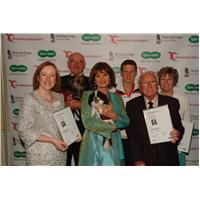![DH [320x200].jpg](https://www.elixirnews.com/assets_c/2010/10/DH [320x200]-thumb-205x320-341.jpg) When Daryl Hannah walks into the hotel for breakfast, heads turn. And this is despite the fact the 44-year-old actress is doing nothing to appear especially glamorous.
When Daryl Hannah walks into the hotel for breakfast, heads turn. And this is despite the fact the 44-year-old actress is doing nothing to appear especially glamorous.
Wearing a dowdy mauve top, a simple purple cardigan, baggy trousers and denim cap her puffy face makes it clear she’s missed another decent night’s sleep (she is a notorious insomniac) and yet still she cuts an image impossible to ignore.
Perhaps it’s that she still sports the long blonde mane of hair that made her famous when she played a mermaid opposite Tom Hanks in Splash, or maybe it’s the way she has reinvented herself as an icon of the violent kind, recently playing one-eyed assassin Elle Driver in Kill Bill.
Having appealed to both sensitive romantics and those with a taste for deadly killers, her cinema audience is large, but no matter how much she tries to surprise us nothing prepares me to guess at her next role: environmental campaigner.
“I’ve started shooting a TV show in the States about all things green,” she tells me. “It’s somewhere between a lifestyle show and a Nigella Lawson type thing and it’s all about what you can do to change the world.
“We look at alternative sources of power, running a car on climate friendly fuel, organic gardening, responsible cooking and holidays in eco-resorts as well as some of the great eco-heroes of our time.”
Coming from Daryl on a bleary-eyed morning it’s clear this is no mere sentiment or fashionable Hollywood puff – she really means it. A vegetarian from the age of seven, she says she has finally come to terms with herself and discovered a stronger sense of personal mission than making movies.
Just as audiences have been rediscovering her, she says she is losing interest in film projects and letting her environmentalism take over. Last year she had to be forcibly evicted after sitting in a walnut tree for 23 days in Los Angeles to save a community garden under threat from developers. It seems what Daryl really wants now is recognition as America’s number one alternative domestic goddess.
“Honestly, that’s where 100% of my energy is going to now,” she insists. “I have been doing a few movie parts over the past two years, but lately I’ve been much more interested in campaigning for the environment. Anyone sensitive to human and animal welfare finds it impossible to ignore the habitat in which we all thrive, and caring about it means looking at how we live.”
Eleven years ago Daryl bought an old disused Wild West stagecoach station in the Rocky Mountains of Colorado and restored it using reclaimed materials. She runs it on solar energy and has established a ranch there, keeping horses and other animals, but she says what she really loves is feeling in tune with nature.
Perhaps we shouldn’t be surprised Daryl would build herself an eco-retreat far away from what she sees as the shallow celebrity world of Los Angeles. She has always been painfully shy, which may seem an odd character trait in an actress, but she has struggled with it ever since the day her natural father walked out on her family when she was only seven-years-old.
Her father severed all ties, leaving Daryl, her mother and two younger siblings without any further contact. As a result of the trauma this caused her, Daryl became so withdrawn she was briefly diagnosed as borderline autistic.
You still notice her shyness today. Other interviewers comment on the playful, girly-light voice she adopts, which functions as a smokescreen to intimacy, but she immediately drops this when we talk about her eco-concerns, revealing an intelligent and extremely well informed woman using authoritative, deeper tones. Perhaps she finds it easier to hide behind facts.
More intriguingly, throughout the interview she seems slightly disengaged. Her conversation is warm and open enough but after half an hour I suddenly realise she hasn’t been looking at me directly in the eyes. She is one of those people who glance in the general direction of your face and lock onto a central spot with an unfocused gaze.
“I am shy and I don’t like interviews, it’s true,” she admits. “But two years ago I had a period of not having a boyfriend for more than a year, and in that time I processed my emotional garbage and demons. I worked really hard, trying to get clear about what my mission in life was. It’s to communicate what really matters to me, and knowing that has helped settle me.”
She marks the moment her father left as the time her ‘epiphany’ about the environment first began. In the middle of the introspection that followed she says she instinctively began to understand the world was different from what she had been taught in Sunday school. She started to want to live in harmony with nature.
Her mother married a second time, to the real estate billionaire Jerrold Wexler, and Daryl grew up comfortably with five additional step-siblings. Killing time watching movies while failing to get to sleep at nights gave her a love for acting and she was only 18 when Brian de Palma cast her in her first role in The Fury.
When she was thrust into the limelight six years later she couldn’t cope with the attention. “I didn’t cope very well after making Splash,” she recalls. “I don’t like people looking at me – I always think: ‘What’s wrong, why are they staring?’ I became a sort of recluse and never learned how to deal with relationships. I just found it uncomfortable.”
She had started dating singer songwriter Jackson Browne when she was 17, but the relationship floundered amid reports of violence and she grew close to John F Kennedy Junior instead. This period in her life brought a near continuous flash-gun of attention from paparazzi photographers and in the aftermath of that she returned to the town where she grew up as a child to establish her eco-ranch.
After briefly dating Val Kilmer and David Blaine she is now with Sean McPherson, wealthy boss of New York’s Maritime Hotel. It is rumoured that she and McPherson may tie the knot soon, and she has certainly said a lot in the past about wanting to start a family.
“I do need a baby,” she says, “send them to me – I want them. But I’m still settling into this next phase of my life as well. So we’ll see what happens.”
Q&A
Can you tell me a bit more about your home?
I live ‘off the grid’, which means I don’t need electricity or gas. We designed it to have mosaic tiled floors that absorb heat passively when sunshine comes through the windows, so that means your feet are always toasty, and it has active solar panels that track the sun it as it moves across the sky so you get maximum renewable energy.
It was really important to me to create my home showing responsibility to the environment. All the materials used to renew the walls were taken from where we dug out some new foundations, so we literally wasted nothing. And I salvaged an old barn being torn down in the town and used the maple wood from that.
I’ve even got a couch made out of some of the rocks we dug up that have grown moss so I can use them as a sofa. Once a week we have to take off the cushions and water the couch.
Do you run your car on chip oil?
I use 100% biodiesel, which is natural vegetable oil (the same stuff used to fry chips). It gives off no pollutants or greenhouse gases and using it means you join a closed carbon loop – any carbon coming from your exhaust was consumed by the plants you burned, so it totally negates itself.
You can use this fuel in most diesel engines and it has a toxicity level somewhere between table salt and maple syrup, so you can carry it with you when you need to refill the tank. It’s not flammable and it’s a renewable resource – you either grow it or use recycled oil.
What is your spiritual outlook?
Whenever I’m in nature that connects me to the earth. It’s like going to church for me – it grounds me and centres me. It is impossible for me to find my energy isn’t re-focused if I spend a bit of time in a beautiful, natural place. My work always takes me to crazy places and cities, so when I’m not working it’s important to get away from that.
I have a family of deer sleeping outside my back door (three ladies and one man so he’s got himself set up) and there are huge herds of elk coming by every now and then. Being close to nature like that spiritually revives me.
You support a breast cancer charity – has that ever affected you personally?
Not yet, thank God, but I have a good friend who has had to have a couple of lumps removed, and thankfully they hadn’t spread so she’s okay. Recently I was the spokesperson for the American Cancer Association and I found out that cancer is the leading cause of death for women in America. As you get older it’s certainly scary.
People always think of cancer as something their mother or grandmother is going to have to deal with, but it affects young women too – look at Kylie.
What do you do to stay looking so young?
I grow my own organic food and I think that’s important because your food is your fuel. I grow tomatoes, peppers, lettuce, spinach, garlic, onions and corn so I certainly don’t have to go out to the supermarket very often. And I make my own honey, which is a natural healer.
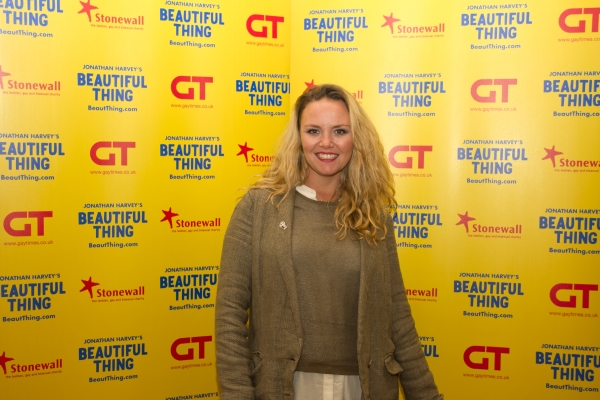

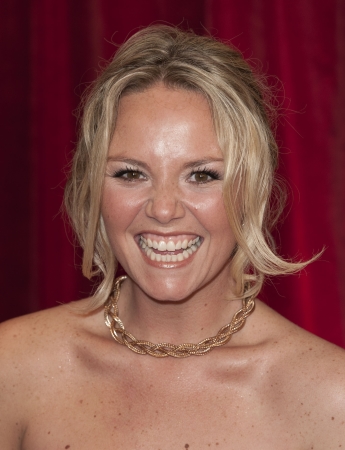
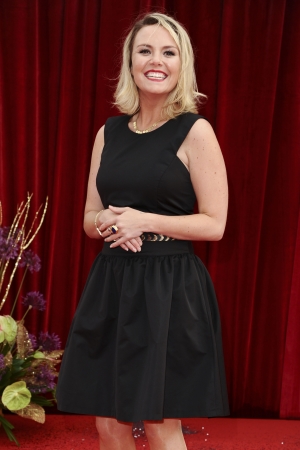
![DH [320x200].jpg](https://www.elixirnews.com/assets_c/2010/10/DH [320x200]-thumb-205x320-341.jpg)
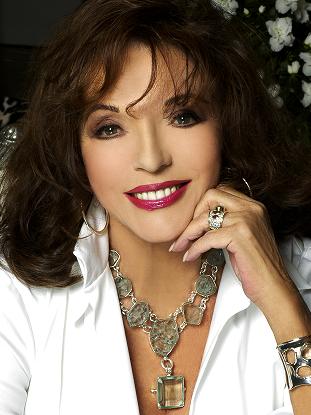
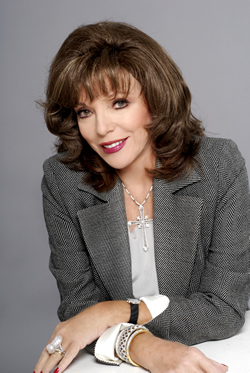 How to you keep your superb figure?
How to you keep your superb figure?
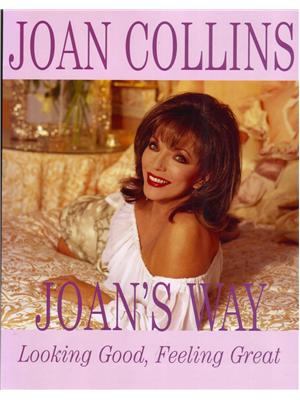
_Small.jpg)
_Small.jpg)
